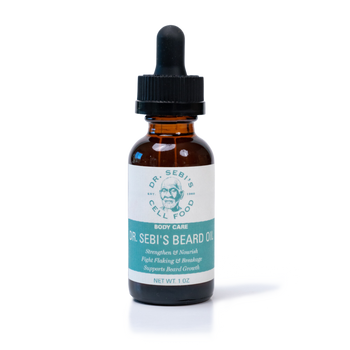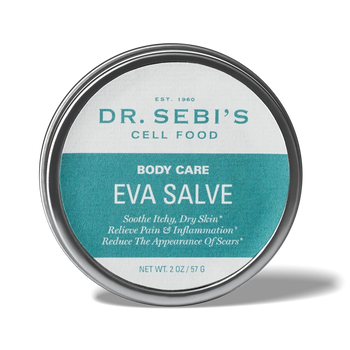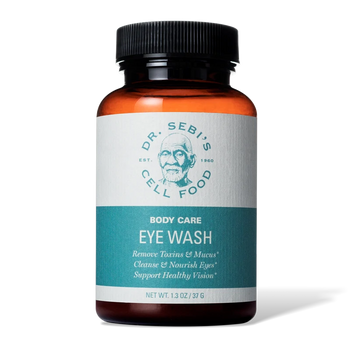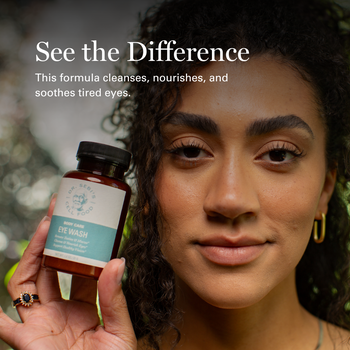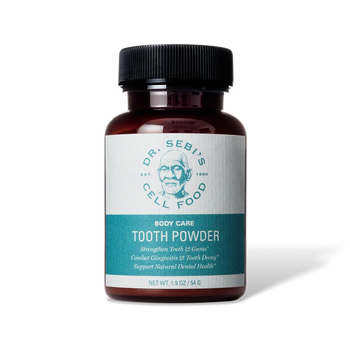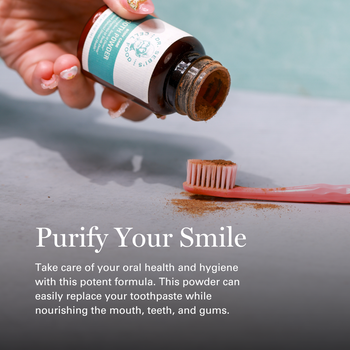Waking up with crusty, sticky eyes can be more than just annoying—it can be a sign of something that needs attention. While eye mucus is a natural defense mechanism to trap dust, bacteria, and other particles, excessive buildup or persistent mucus can indicate imbalances in the body.
Excessive mucus in the eyes often points to an underlying issue such as dehydration, poor diet, or an acidic internal environment. Dr. Sebi called mucus the root of all disease and emphasized the importance of maintaining an alkaline environment to support overall health and eliminating mucus for good.
“Mucus is the cause of every disease. Eliminate the mucus and you eliminate the disease.” –Dr. Sebi
What Causes Eye Mucus?
Eye mucus, also known as eye discharge or "sleep," is a natural byproduct of your body’s defense system you generally find around the edges and corners of your eyes. It’s produced by the conjunctiva, the thin membrane that lines the eye, and helps trap dust, bacteria, and other foreign particles, preventing them from entering your eyes.
Under normal circumstances, the production of mucus is a helpful and protective function. However, when the body is under stress or imbalance, excess mucus can be produced, leading to discomfort, irritation, and congestion in the eyes.
There are several factors that can lead to excessive eye mucus production:
-
Allergies: Pollen, dust, pet dander, or other allergens can irritate the eyes, causing them to produce more mucus as a protective response.
-
Infections: Conditions like conjunctivitis (pink eye) or a bacterial eye infection can trigger significant mucus production, which often appears as green or yellow discharge.
-
Dry Eyes: When the eyes are dry, they may overcompensate by producing more mucus to keep the eyes moist.
-
Poor Diet and Dehydration: An unhealthy, acidic diet and insufficient hydration can contribute to increased mucus production throughout the body, including the eyes.
-
Environmental Factors: Exposure to smoke, pollution, or harsh chemicals can irritate the eyes and lead to excess mucus.
Types of Eye Discharge
Abnormal eye discharge can vary in consistency and color, often indicating an underlying condition such as an infection, allergy, or dryness in the eyes.
-
Clear discharge: Often associated with allergies or dry eyes; can be watery and may cause a feeling of grittiness in the eyes.
-
Yellow or green discharge: Typically a sign of bacterial infection, such as conjunctivitis (pink eye), and can cause crusting around the eyes.
-
White or cloudy discharge: Can indicate a viral infection or dry eye syndrome, and may appear more noticeable upon waking.
-
Brown or rust-colored discharge: Can be caused by old mucus mixed with tears, or sometimes by environmental irritants.
-
Mucus-like discharge: Thick and stringy, often seen in cases of severe conjunctivitis or eye irritation.
-
Frothy discharge: May occur with viral infections or eye allergies, typically presenting as foamy mucus that can cause irritation.
How to Get Rid of Eye Mucus Naturally
If you’re dealing with eye mucus, there are several natural remedies you can try to clear it up and restore comfort:
Eyebright Eye Wash
Using Dr. Sebi’s Eyewash can help soothe irritated eyes and clear away excess mucus with eyebright, which reduces inflammation and infection around the eyes. Mix half a teaspoon of Eyewash with eight ounces of distilled water, steep for 15 minutes, strain, and let cool. Wash your eyes twice a day using an eye cup.
Chamomile Tea
You can also use Dr. Sebi’s Stress Relief Tea as an eye wash for its soothing and anti-inflammatory properties. Steep in hot water, allow it to cool, and use a clean cloth or cotton ball to wipe over your closed eyelids. Pro tip: Use the tea bags over your eyes once they've cooled down.
Saline Solution
A simple saline solution can help clear mucus and relieve eye irritation. Mix a teaspoon of salt in a cup of warm water (distilled) and use it as an eye rinse. This will cleanse the eyes and provide a gentle, natural way to remove mucus without causing further irritation.
Warm and Cold Compresses
Both warm and cold compresses can be effective in relieving eye mucus and soothing irritation. A cold compress can help reduce swelling and inflammation around the eyes, as well as tighten the skin. Warm compresses help soften and loosen mucus, making it easier to remove.
Soak a clean cloth in either warm or cold water, wring it out, and gently place it over your closed eyes for five to 10 minutes.
How to Prevent Eye Mucus
Preventing eye mucus starts with addressing the underlying factors that contribute to its production. Here are some simple ways to keep your eyes clear and healthy:
-
Stay Hydrated: Dehydration is one of the main causes of dry eyes and excessive mucus production. Ensure that you’re drinking plenty of water throughout the day—Dr. Sebi recommends drinking at least one gallon of spring water daily to help flush out toxins and maintain proper hydration.
-
Maintain an Alkaline Diet: According to Dr. Sebi, an alkaline diet is key to reducing excess mucus in the body. Avoid mucus-causing foods such as dairy, processed foods, and refined sugars, and focus on eating a variety of fresh fruits, vegetables, whole grains, and plant-based proteins. Alkaline foods like leafy greens, cucumbers, and sea moss can help reduce mucus buildup and support overall eye health.
-
Minimize Exposure to Irritants: Avoiding exposure to smoke, pollution, and harsh chemicals can reduce the risk of eye irritation and mucus buildup. If you work in an environment with air pollutants, consider wearing protective eyewear or using an air purifier.
-
Practice Good Hygiene: Wash your hands regularly and avoid touching your eyes to help prevent the spread of bacteria or viruses that can lead to bacterial infections and mucus buildup. Keeping your eye area clean, especially before bed, can help minimize excess discharge.
How to Support Long-Term Eye Health
To maintain long-term eye health and prevent mucus buildup, it’s essential to take a holistic approach. Here are some tips to support your eye health for the long run:
-
Get Plenty of Rest: Adequate sleep is vital for eye health. During sleep, your eyes get the chance to recover and refresh. Avoiding excessive screen time and ensuring you get seven to nine hours of rest each night can help reduce eye strain and irritation.
-
Incorporate Alkaline, Eye-Healthy Foods: To nourish your eyes and keep them clear, include foods like leafy greens, avocados, and citrus fruits to promote healthy vision and reduce the risk of eye problems.
-
Use Natural Eye Drops: Opt for gentle, natural eye drops made from herbal ingredients like eyebrright. These drops can help moisturize dry eyes, reduce irritation, and prevent mucus buildup without harsh chemicals.
-
Detox Regularly: Following Dr. Sebi’s detoxing principles, such as periodic fasting and using detoxifying herbs, can help keep your body in balance and reduce the overall production of mucus. Regular detoxing supports the natural cleansing of the body, including the eyes.


